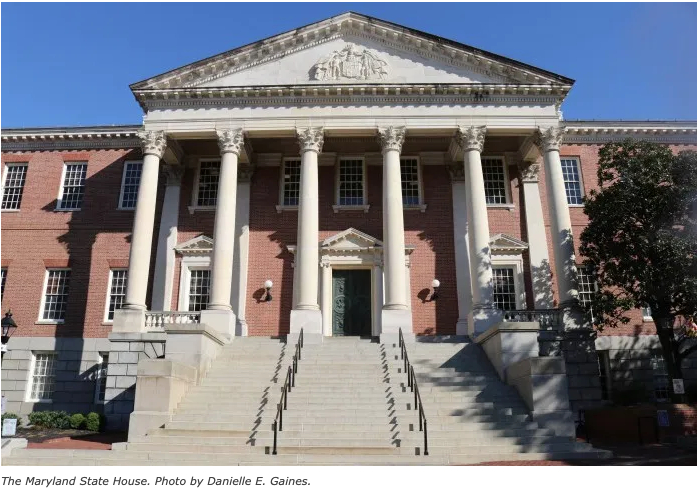Maryland voters said state lawmakers should have more say over the annual budget and voted for the legalization of sports and events betting.
There were two statewide ballot questions up for vote on Nov. 3.
Question 1 will allow the Maryland General Assembly to make changes to the budget proposed by the governor as long as the total does not exceed the governor’s proposed budget.
Currently, state lawmakers may not increase budget items or add new items to the governor’s proposed budget. Once the budget is passed, it cannot be changed or vetoed by the governor.
With passage of Question 1, state lawmakers could move spending between agencies and/or add spending for new items as long as the total budget doesn’t exceed the governor’s proposed budget.
The governor would be able to veto items added or increased by state lawmakers.
The change will begin with the 2024 budget, presented during the 2023 legislative session.
Maryland voters approved the constitutional amendment by 74% for to 26% against.
Question 2 asked voters whether commercial gaming should be expanded to sports and events betting “for the primary purpose of raising revenue for education?”
Maryland voters approved the measure 67% to 33% against.
Maryland will join Washington, D.C., as well as nearby states of New Jersey, Delaware, Virginia, Pennsylvania, West Virginia and New York in legalizing sports gambling.
Lawmakers are expected to discuss and vote on additional details like who should get sports wagering licenses after the state legislature convenes in January.
Sen. Craig Zucker, D-Montgomery, and other lawmakers envision casinos and racetracks to be able to obtain sports wagering licenses, which could allow Marylanders to place bets on professional and college sporting events.
Zucker told Capital News Service that the Washington Football Team could obtain a sports betting license if owner, Daniel Snyder, keeps the organization in Maryland.
According to Zucker, sports betting would generate between $20 million and $40 million per year that would likely go into public schools.
“It’s a pretty non-political, non-partisan issue that both parties agree is good for the state of Maryland in terms of capturing that lost revenue especially during this global pandemic,” Zucker said. “The economy has been hurt and sports betting would help fill in some of the holes that we’ve seen with education funding.”
Capital News Service reporters Philip Van Slooten and Ryan McFadden contributed to this article.





